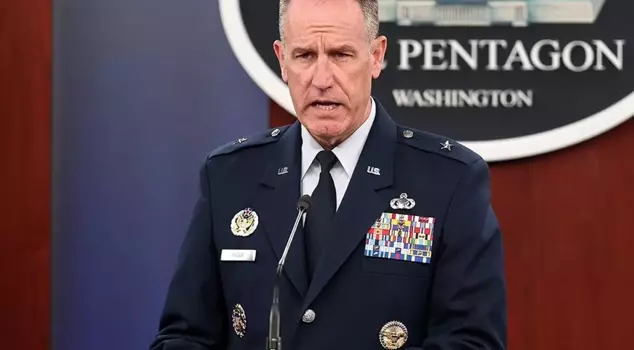
20.12.2024 14:02
The Pentagon spokesperson, Brigadier General Patrick Ryder, made a statement that sounded almost like a joke while evaluating the recent developments in Syria. Ryder noted that he learned today that the number of U.S. troops in Syria is not 900, but 2,000. In response to a question about whether the number of U.S. troops in Iraq is up to date, he replied, "Let me get back to you on that."
The Pentagon spokesperson, Brigadier General Patrick Ryder, spoke at the daily press briefing. Ryder stated, "Today I learned that there are approximately 2,000 U.S. troops in Syria, and as it has been explained to me, these additional forces are considered temporary rotational forces deployed to meet mission requirements, with a core number of 900 U.S. troops present for longer-term deployment."
"LET ME CHECK THE NUMBER OF TROOPS IN IRAQ AND GET BACK TO YOU"
Ryder suggested that they have been looking into the number of U.S. troops due to significant interest in Syria in recent weeks and that they wanted to update the new information obtained, also claiming that these approximately 2,000 U.S. troops were stationed there before the fall of the Baath regime. Ryder asserted that the increase in forces in Syria is temporarily to bolster U.S. operations against ISIS, and in response to a question about whether the number of U.S. troops in Iraq is current, he replied, "Let me get back to you on that." The U.S. has long stated that the number of troops in Syria is 900.
In light of the potential for the federal government to shut down tomorrow if no agreement is reached in budget discussions in the U.S., Ryder noted that they are closely monitoring the situation and that the Pentagon has made necessary plans as a precaution. Ryder stated that in the event of a government shutdown, personnel from the Department of Defense in essential areas would continue to work actively, but military personnel would not be paid until new funds are allocated by Congress. He expressed that military technicians and civilian personnel in non-essential areas would be placed on unpaid leave, warning that a government shutdown would cause "serious disruptions" at the Pentagon and calling on Congress to reach an agreement on the budget.
2025 FISCAL YEAR BUDGET
According to American law, if Congress fails to approve the budget for the entire fiscal year, which begins on October 1 and ends on September 30, in a timely manner, the period until this happens must be covered by temporary budgets. During periods when the budget is not approved, the federal government loses its spending authority and must suspend all activities except for essential services.
The U.S. Congress approved the first temporary budget proposal in September to prevent the government from shutting down due to funding shortages in the 2025 fiscal year, which begins on October 1, 2024. The temporary budget, signed into law by U.S. President Joe Biden, is expected to provide funding for the government until December 20. Members of both parties in Congress are working to reach an agreement on the 2025 fiscal year budget.